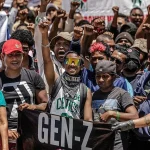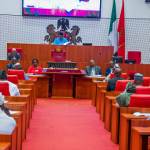In the bustling markets of Kano, thousands of informal traders struggle daily to keep their small businesses alive. From food vendors to textile sellers, these traders are the heartbeat of the local economy, yet they face immense challenges brought by Nigeria’s rising inflation and unstable currency.
According to the National Bureau of Statistics (NBS), Nigeria’s inflation rate has remained above 30% in 2025, eroding consumer purchasing power. For Kano’s traders, this means buying goods at higher costs while customers cut back on spending. ‘A bag of rice that was ₦45,000 last year now costs ₦65,000,’ says Fatima Suleiman, a market woman in Sabon Gari. ‘Customers complain, but I also cannot sell at a loss.’
Most of these traders operate without access to formal banking, relying on local savings groups (‘adashe’) to sustain their businesses. Experts argue that without financial inclusion, informal traders remain vulnerable to economic shocks. The Central Bank of Nigeria (CBN) has launched initiatives to expand microcredit, but uptake in Northern states remains low due to limited awareness and trust.
Economic analysts warn that neglecting informal traders could worsen unemployment and poverty in Northern Nigeria. Policy reforms that lower interest rates for microloans, coupled with training in bookkeeping and digital payments, could help stabilize their businesses. Until then, survival remains the daily goal in Kano’s markets.








